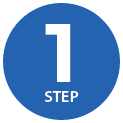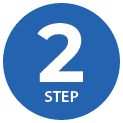
Develop Essential Customer Service Skills
Get useful tips and strategies for working effectively with customers.
By completing this program, you will:
- Identify techniques to communicate successfully with customers.
- Identify strategies to better handle demanding or difficult customers.
- Demonstrate your dedication to lifelong learning and professional development.
- Fulfill one of four mandatory training requirements for the state's Administrative Assistant Traineeship.
You can expect to enhance your job-based skills in the Interpersonal and Customer Relations workforce development competency.
Eligibility

All CSEA-represented NYS employees are eligible to participate.
Management/Confidential NYS employees with an Empire KnowledgeBank (EKB) license are also eligible to participate. Contact your agency training officer for information on obtaining an EKB license.
Supervisory approval is not required for courses taken outside the normal workday. It may be possible for employees to take courses during working hours with supervisory approval.
How it Works
- Register and take all the required courses online in SLMS anytime starting February 12, 2026.
- To earn a certificate, you must complete all required courses and achieve a passing grade of 70% or higher in each course by the program's end date (February 11, 2027).
- To print your certificate, log in to SLMS, go to the My Learning page, locate the appropriate certificate program, and select the Print Certificate button. The Print Certificate button will only be available if the status is Completed.
Required Courses
Customer Service: Discovering Customer Needs (0.5 Hours)
Customer needs lie at the heart of every service interaction. In order to fully support the customer, we must be able to identify both their stated and unstated needs. Customer support professionals use a combination of skills to analyze beyond the stated requirements to uncover the full spectrum of customer needs.
In this course, you’ll learn the service advantages of being able to identify your customers' needs. You’ll learn best practices for discerning both stated and unstated needs in a service interaction and how to avoid problems and pitfalls in needs exploration. You'll also learn techniques to help you exceed your customers' needs and you'll explore scenarios that put these practices into action.
Customer Service: Adapting to Your Customers' Cues (0.5 Hours)
The ability to support a customer is keenly enhanced by a greater understanding of the customer’s mood, communication style, and knowledge of the product or service in question. From the first moments of interaction, the customer will be giving cues in each of these areas. Interaction with customers requires planning, active listening, and a conscious effort to adjust your communication and support approach based on your customer's cues. In this course, you'll learn how to recognize and read customer cues, and how to use them to adapt your support strategy to each individual customer. You'll also explore how to overcome common pitfalls customer service agents face in assessing their customer’s cues.
Customer Service: Fostering a Service Mindset (0.5 Hours)
Success is both an outcome and a mindset. Professionals who wish to provide a truly exceptional level of customer service approach each interaction with the right mindset and attitude. Without understanding how mindset impacts service ability, you compromise your potential and that of the organization, which ultimately results in a poor customer service experience. Focusing on your service mindset and attitude will ensure your professional values will manifest in each service interaction.
In this course, you’ll learn how moving to a different mindset can help you deliver outstanding customer service, and what key practices can help establish a good personal mindset for any service situation. You’ll also learn to recognize how professional values manifest during customer service interactions, how to develop an attitude of a customer service professional, and what strategies demonstrate a customer-centric service mindset.
Customer Service: Interpreting Customers’ Service Priorities (0.5 Hours)
CSRs who can identify their customers' priorities are able to make the best decisions on how to serve the customer. A customer’s priorities may be both explicit (stated clearly or obvious) and implicit (unsaid or unexpected). Understanding the scope and interdependence of these priorities allows you to better address each customer’s implicit needs and help you deliver a higher level of service.
In this course, you’ll learn to distinguish customer priorities as either explicit or implicit, and to describe how speed influences customer perception. You’ll also learn strategies to decrease the amount of effort the customer has to expend in getting issues resolved, methods to demonstrate your presence for customers in service interactions, and strategies to help you balance priorities during a customer service interaction.
Customer Service: Engaging with Customers (0.5 Hours)
Customer service is customer engagement. And as a customer service representative, you don’t often get to see happy, smiling customers, excited by their new service, new device, new outfit, or new opportunity. You get to see them when the new thing isn’t working. Or isn’t the right color. Or may not be billed correctly. And then you get to try to make them happy again. In this course, you’ll learn proven techniques customer service professionals can use to boost their self-confidence, better engage with their customers, and demonstrate flexibility and efficiency in the problem-solving process.
Customer Service: Strengthening Your Service Skills (0.5 Hours)
Customer service continues to become a strategic imperative for most organizations today. Experienced CSRs have valuable experience with both hard and soft skills, making this role an ideal launchpad for a career in the business or private sector. This course enables you to determine the most effective means for self-improvement, teaching you the skills to find and practice growth and development opportunities in customer service, in your company and industry, and that give you a deeper sense of personal achievement and satisfaction.
In this course, you’ll learn how to leverage your interests to boost your skillset. You’ll also learn to find and use learning resources that support professional growth, strategies that promote lifelong learning, and how to use that knowledge to build a career development plan.
Customer Service: Generating Effective Solutions (0.5 Hours)
CSRs who can identify their customers' priorities are able to make the best decisions Customer service is all about finding the right solution for every client. CSRs who can quickly determine the underlying causes and issues associated with a customer’s problem are more likely to generate fast and effective solutions.
In this course, you’ll examine proven techniques to find the root cause of a problem, align a right-fit solution, and deliver a final resolution. You’ll recognize how to arm yourself with the information you need before and during an interaction, and learn the solution steps in a process-based approach to customer service. You’ll also learn approaches for addressing common obstacles encountered during customer service interactions, indications when a call should be escalated to a higher tier of service and explore strategies to take customer service solutions to the next level.
Customer Service: Becoming a Chat Agent Star (0.5 Hours)
Companies and customers alike say chat service is the most important and fastest growing customer service channel. It provides the highest customer satisfaction. This makes it critical to build capacity and proficiency to deliver the highest levels of customer service through the chat channel. A great chat CSR is able to solve problems for customers using the communication skills every customer service agent learns and adapting them to the chat channel.
In this course, you’ll explore the world of the customer service chat. You’ll explore the key characteristics of chat service and the skills needed to master it. You’ll also learn the best practices for chat communication and the pitfalls to avoid on the way to becoming a chat star.
Building Shared Understanding across Cultural Divides (0.4 Hours)
Building good working relationships with any colleague takes time and effort, but when colleagues are from different cultures, creating productive relationships may be more challenging. Cultural differences can impact communication and even steer it away from the intended purpose. When you compound cultural differences with the need to communicate virtually, achieving effective communication becomes even more formidable. In this course, you will learn communication strategies that will help you to effectively build and maintain relationships with culturally diverse colleagues around the globe. From building initial rapport to sharing information, brainstorming, and preventing conflicts, you'll be able to recognize behaviors that will enable you to communicate effectively and achieve your business goals.
Remaining Tactful and Diplomatic under Pressure (0.4 Hours)
Over the course of a career, not everyone you work with will be easy to get along with. Sometimes this presents difficult situations. But whether it's your boss, a peer, direct report, client, or vendor, professionalism, and professional success, rely on overcoming challenging people and be able to work with even those you don't personally care for. It requires using tact.
In this course, you'll learn to navigate challenging situations with tact and diplomacy. You'll learn how to get along with co-workers, give feedback to bosses and direct reports, compose tactful emails, and negotiate diplomatically.
Optional Learning
Want to learn more? Once you've completed all the required courses, consider continuing your learning with the following optional activities. Unlike the required courses, you do not need to complete these to earn your certificate.
Digital Books and Videos
Discover a world of resources with the Empire KnowledgeBank (EKB) and Skillsoft eBook and Video Portal. Search EKBSS_TMPL20150123135209420 in SLMS. You'll gain access to the following free digital books and online videos, as well as thousands more! Get directions on using the EKB and Skillsoft eBook and Video Portal.
Recommended Reading
- 10 Steps to Successful Customer Service, by Maxine Kamin
- Mindfulness at Work - How to Avoid Stress, Achieve More, and Enjoy Life, by Dr. Stephen McKenzie
- Powerful Phrases for Effective Customer Service: Over 700 Ready-to-Use Phrases and Scripts That Really Get Results, by Renee Evenson
- Success Under Stress: Powerful Tools for Staying Calm, Confident, and Productive When the Pressure's On, by Sharon Melnick
- The Customer Service Survival Kit: What to Say to Defuse Even the Worst Customer Situations, by Richard S. Gallagher
Training
These courses are offered by the Partnership and are open to all CSEA-represented NYS employees. Webinars can be taken from any computer with a connection to the internet. You can also view recordings of webinars.
Recommended Courses
- How to Navigate Conflict Effectively (Webinar)
- Customer Service
- Customer Service (Online)
- Dealing with Stress (Webinar)
Managing Emotions in Customer Service (Webinar)
Register
To participate, you must follow our two-step registration process. The first step varies for CSEA-represented NYS employees and Management/Confidential NYS employees.

CSEA-represented NYS employees: Apply for a Partnership Online Learning License in the Statewide Learning Management System. Search P_OL_Program in SLMS. Please allow up to five business days for license approval.
NYS Management/Confidential Employees: Contact your agency training director to obtain an Empire KnowledgeBank license if you don't have one already.

Once you have an active license, you can register for the program in SLMS. Search P_CS26 in SLMS.
Technical Support and Questions
SLMS will allow registration for the certificate even if you don't have an online learning license. Once your license is active, you can enroll in the certificate's classes.
Please note that new employees may not have access to SLMS until they receive their first paycheck.
Still need help or have questions?
Contact us at (800) 253-4332 or email [email protected].